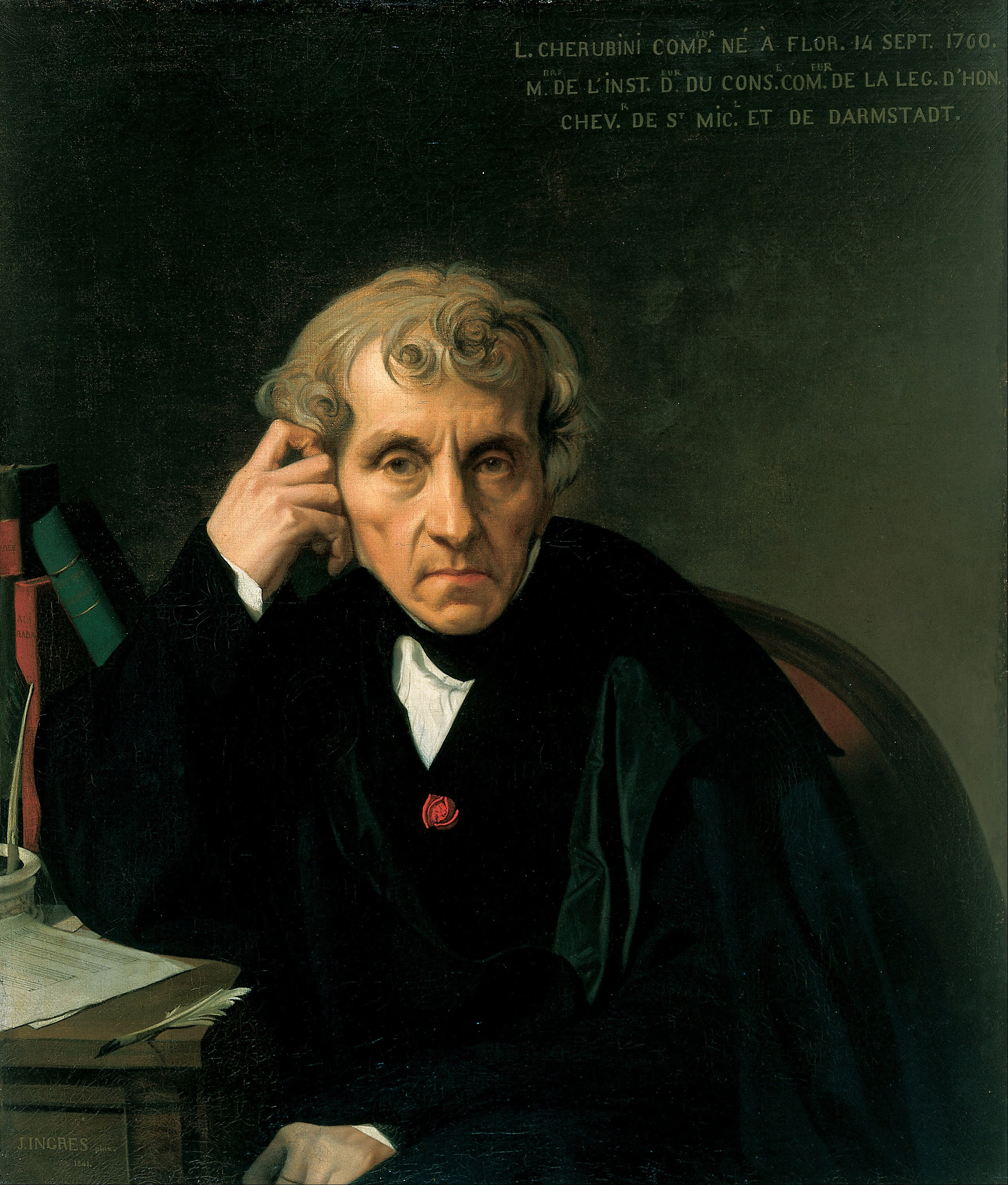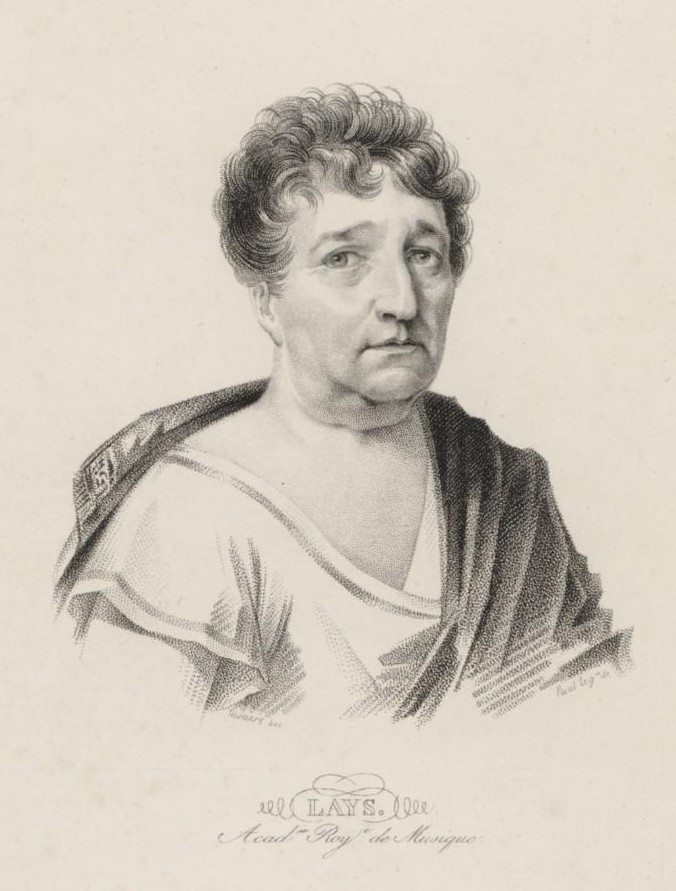|
Démophoon
''Démophoon'' (sometimes spelt ''Démophon'') is an opera by the composer Luigi Cherubini, first performed at the Académie Royale de Musique (the Paris Opera) on 2 December 1788. It takes the form of a ''tragédie lyrique'' in three acts. The libretto, by Jean-François Marmontel, is based on ''Demofoonte'' by Metastasio. Performance history and reception ''Démophoon'' was Cherubini's first French opera after his move from London to Paris. It was not a success and was soon eclipsed by Johann Christoph Vogel's opera on the same subject, which premiered the following year. The musicologist Basil Deane writes: "In retrospect it is easy to see that failure was inevitable. Marmontel based his French libretto on Metastasio, but sacrificed his predecessor's directness by introducing a superfluous sub-plot. Diffuse in structure, his text is pompously banal in language." The Italian Cherubini also had difficulty setting French and there are numerous examples of false accentuation. He w ... [...More Info...] [...Related Items...] OR: [Wikipedia] [Google] [Baidu] |
François Lays
François Lay, better known under the stage name Lays (14 February 1758 – 30 March 1831), was a French baritone and tenor opera singer. Originally destined for a career in the church, Lays was recruited by the Paris Opéra in 1779. He soon became a leading member of the company, in spite of quarrels with the management. Lays enthusiastically welcomed the French Revolution and became involved in politics with the encouragement of his friend Bertrand Barère. Barère's downfall led to Lays being imprisoned briefly, but he soon won back the public and secured the patronage of Napoleon, at whose coronation and second wedding he sang. This association with the Emperor caused him trouble when the Bourbon monarchy was restored and Lays's final years were darkened by disputes over his pension, mounting debts, the death of his only son and his wife's illness. After a career spanning more than four decades, he died in poverty. Lays was famous for the beauty of his voice. One of the Op� ... [...More Info...] [...Related Items...] OR: [Wikipedia] [Google] [Baidu] |
Luigi Cherubini
Luigi Cherubini ( ; ; 8 or 14 SeptemberWillis, in Sadie (Ed.), p. 833 1760 – 15 March 1842) was an Italian Classical and Romantic composer. His most significant compositions are operas and sacred music. Beethoven regarded Cherubini as the greatest of his contemporaries. His operas were heavily praised and interpreted by Rossini. Early years Cherubini was born Maria Luigi Carlo Zenobio Salvatore Cherubini in Florence in 1760. There is uncertainty about his exact date of birth. Although 14 September is sometimes stated, evidence from baptismal records and Cherubini himself suggests the 8th is correct. Perhaps the strongest evidence is his first name, Maria, which is traditional for a child born on 8 September, the feast-day of the Nativity of the Virgin. His instruction in music began at the age of six with his father, Bartolomeo, '' maestro al cembalo'' ("Master of the harpsichord", in other words, ensemble leader from the harpsichord). Considered a child prodigy, Cherubini st ... [...More Info...] [...Related Items...] OR: [Wikipedia] [Google] [Baidu] |
Antoinette Saint-Huberty
Anne-Antoinette-Cécile Clavel, better known by her stage name Madame Saint-Huberty or Saint-Huberti ( Strasbourg, 15 December 1756 – 22 July 1812, Barnes, London), was a celebrated French operatic soprano whose career extended from until 1790. After her retirement from the stage and the publicising of her second marriage, she was also known as the Comtesse d'Antraigues from around 1797. She and her husband were murdered in England. Early life and musical career Antoinette Clavel (later known professionally as Madame Saint-Huberty) was the daughter of Jean-Pierre Clavel, a musician employed as a répétiteur in the private opera troupe of Charles IV Theodore, Elector Palatine. Her mother was Claude-Antoinette Pariset, the daughter of a grocer from Sélestat.Dorlan (1932), p. 25. Her biographers have often disagreed about her place of birth. Renwick, for example, found instances of it being indicated as Toul, Thionville, or Mannheim, and Clayton gives it as Toulouse – pr ... [...More Info...] [...Related Items...] OR: [Wikipedia] [Google] [Baidu] |
Jean-François Marmontel
Jean-François Marmontel (11 July 1723 – 31 December 1799) was a French historian, writer and a member of the Encyclopédistes movement. Biography He was born of poor parents at Bort, Limousin (today in Corrèze). After studying with the Jesuits at Mauriac, Cantal, he taught in their colleges at Clermont-Ferrand and Toulouse; and in 1745, acting on the advice of Voltaire, he set out for Paris to try for literary success. From 1748 to 1753 he wrote a succession of tragedies: ''Denys le Tyran'' (1748); ''Aristomene'' (1749); ''Cleopâtre'' (1750); ''Heraclides'' (1752); ''Egyptus'' (1753). These literary works, though only moderately successful on the stage, secured Marmontel's introduction into literary and fashionable circles. He wrote a series of articles for the ''Encyclopédie'' evincing considerable critical power and insight, which in their collected form, under the title ''Eléments de Littérature'', still rank among the French classics. He also wrote several c ... [...More Info...] [...Related Items...] OR: [Wikipedia] [Google] [Baidu] |
Démophon
''Démophon'' is a French-language opera by the composer Johann Christoph Vogel, first performed at the Académie Royale de Musique (the Paris Opera The Paris Opera (, ) is the primary opera and ballet company of France. It was founded in 1669 by Louis XIV as the , and shortly thereafter was placed under the leadership of Jean-Baptiste Lully and officially renamed the , but continued to be ...) on 15 September 1789. The libretto is by Philippe Desriaux. The second and last of Vogel's operas to be staged, it was premiered after the composer's death at the age of 32 the previous year. Roles References ;Notes ;SourcesOriginal librettoanscoreat Gallica - Bibliothèque Nationale de France Operas French-language operas 1789 operas Operas by Johann Christoph Vogel {{french-opera-stub ... [...More Info...] [...Related Items...] OR: [Wikipedia] [Google] [Baidu] |
Tenor
A tenor is a type of classical music, classical male singing human voice, voice whose vocal range lies between the countertenor and baritone voice types. It is the highest male chest voice type. The tenor's vocal range extends up to C5. The low extreme for tenors is widely defined to be B2, though some roles include an A2 (two As below middle C). At the highest extreme, some tenors can sing up to the second F above middle C (F5). The tenor voice type is generally divided into the ''leggero'' tenor, lyric tenor, spinto tenor, dramatic tenor, heldentenor, and tenor buffo or . History The name "tenor" derives from the Latin word ''wikt:teneo#Latin, tenere'', which means "to hold". As Fallows, Jander, Forbes, Steane, Harris and Waldman note in the "Tenor" article at ''Grove Music Online'': In polyphony between about 1250 and 1500, the [tenor was the] structurally fundamental (or 'holding') voice, vocal or instrumental; by the 15th century it came to signify the male voice that ... [...More Info...] [...Related Items...] OR: [Wikipedia] [Google] [Baidu] |
Operas By Luigi Cherubini
Opera is a form of theatre in which music is a fundamental component and dramatic roles are taken by singers. Such a "work" (the literal translation of the Italian word "opera") is typically a collaboration between a composer and a librettist and incorporates a number of the performing arts, such as acting, scenery, costume, and sometimes dance or ballet. The performance is typically given in an opera house, accompanied by an orchestra or smaller musical ensemble, which since the early 19th century has been led by a conductor. Although musical theatre is closely related to opera, the two are considered to be distinct from one another. Opera is a key part of the Western classical music tradition. Originally understood as an entirely sung piece, in contrast to a play with songs, opera has come to include numerous genres, including some that include spoken dialogue such as '' Singspiel'' and '' Opéra comique''. In traditional number opera, singers employ two styles of ... [...More Info...] [...Related Items...] OR: [Wikipedia] [Google] [Baidu] |
Operas
Opera is a form of theatre in which music is a fundamental component and dramatic roles are taken by singers. Such a "work" (the literal translation of the Italian word "opera") is typically a collaboration between a composer and a librettist and incorporates a number of the performing arts, such as acting, scenery, costume, and sometimes dance or ballet. The performance is typically given in an opera house, accompanied by an orchestra or smaller musical ensemble, which since the early 19th century has been led by a conductor. Although musical theatre is closely related to opera, the two are considered to be distinct from one another. Opera is a key part of the Western classical music tradition. Originally understood as an entirely sung piece, in contrast to a play with songs, opera has come to include numerous genres, including some that include spoken dialogue such as ''Singspiel'' and ''Opéra comique''. In traditional number opera, singers employ two styles of singing: ... [...More Info...] [...Related Items...] OR: [Wikipedia] [Google] [Baidu] |
Apollo
Apollo, grc, Ἀπόλλωνος, Apóllōnos, label=genitive , ; , grc-dor, Ἀπέλλων, Apéllōn, ; grc, Ἀπείλων, Apeílōn, label=Arcadocypriot Greek, ; grc-aeo, Ἄπλουν, Áploun, la, Apollō, la, Apollinis, label=genitive, , ; , is one of the Olympian deities in classical Greek and Roman religion and Greek and Roman mythology. The national divinity of the Greeks, Apollo has been recognized as a god of archery, music and dance, truth and prophecy, healing and diseases, the Sun and light, poetry, and more. One of the most important and complex of the Greek gods, he is the son of Zeus and Leto, and the twin brother of Artemis, goddess of the hunt. Seen as the most beautiful god and the ideal of the ''kouros'' (ephebe, or a beardless, athletic youth), Apollo is considered to be the most Greek of all the gods. Apollo is known in Greek-influenced Etruscan mythology as ''Apulu''. As the patron deity of Delphi (''Apollo Pythios''), Apollo is an oracul ... [...More Info...] [...Related Items...] OR: [Wikipedia] [Google] [Baidu] |
Baritone
A baritone is a type of classical male singing voice whose vocal range lies between the bass and the tenor voice-types. The term originates from the Greek (), meaning "heavy sounding". Composers typically write music for this voice in the range from the second F below middle C to the F above middle C (i.e. F2–F4) in choral music, and from the second A below middle C to the A above middle C (A2 to A4) in operatic music, but the range can extend at either end. Subtypes of baritone include the baryton-Martin baritone (light baritone), lyric baritone, ''Kavalierbariton'', Verdi baritone, dramatic baritone, ''baryton-noble'' baritone, and the bass-baritone. History The first use of the term "baritone" emerged as ''baritonans'', late in the 15th century, usually in French sacred polyphonic music. At this early stage it was frequently used as the lowest of the voices (including the bass), but in 17th-century Italy the term was all-encompassing and used to describe the averag ... [...More Info...] [...Related Items...] OR: [Wikipedia] [Google] [Baidu] |
Soprano
A soprano () is a type of classical female singing voice and has the highest vocal range of all voice types. The soprano's vocal range (using scientific pitch notation) is from approximately middle C (C4) = 261 Hz to "high A" (A5) = 880 Hz in choral music, or to "soprano C" (C6, two octaves above middle C) = 1046 Hz or higher in operatic music. In four-part chorale style harmony, the soprano takes the highest part, which often encompasses the melody. The soprano voice type is generally divided into the coloratura, soubrette, lyric, spinto, and dramatic soprano. Etymology The word "soprano" comes from the Italian word '' sopra'' (above, over, on top of),"Soprano" '' |


.jpg)



